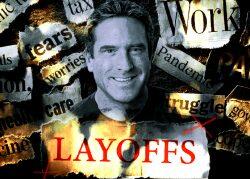The proptech startup Pacaso has made a few enemies in its efforts to help its customers realize their dream of second-home ownership.
Now comes the blowback, as legal and legislative actions in its home state of California spell trouble for the young company.
This month in Napa Valley, the planning commission for the city of St. Helena recommended expanding its rule banning timeshares to include Pacaso’s fractional ownership model. The proposal will soon go before the city council.
Down south, Palm Springs voted to extend its ban on timeshares to Pacaso’s business. It also issued a cease and desist letter to the company, which has sponsored four properties in the area.
The actions could trigger other roadblocks for Pacaso, which became something of a sensation last year when it achieved a $1 billion valuation less than 12 months after its launch — the fastest any proptech has reached “unicorn” status. The company operates in at least six other markets in California.
Read more


San Francisco-based Pacaso, founded in 2020 by former Zillow executives Spencer Rascoff and Austin Allison, says it generated nearly $300 million in revenue in 2021 selling one-eighth shares of vacation properties across the U.S. to aspiring second-home owners — often over the protests of locals who saw its arrival as an invasion of their communities.
Demonstrations attended its recent debut in Maui, but the uproar has been particularly loud in its home state, where a loose association of anti-Pacaso civilian groups has coalesced to fight the company on the basis that it is a commercial enterprise operating in residential, or rural, areas.
The groups also assert Pacaso is hurting neighborhoods by removing already limited housing stock from tight markets — a claim the company disputes, citing its focus on a small group of luxury properties that are empty much of the year.
Pacaso preemptively sued St. Helena last April after the city of 6,000 signaled it would seek to freeze the company’s activity there. Pacaso maintains that it is in the business not of timeshares but of co-ownership —– a new asset type as of last summer, after Pacaso pushed to have it recognized by the Real Estate Standards Organization.
This crucial distinction is what St. Helena and Palm Springs now seek to eliminate or render moot.
If St. Helena’s planning commission gets the city council to include fractional ownership in the city’s timeshare ordinance, it would be the first change to the law since 1982.
Colin Tooze, a spokesman for Pacaso, said that would represent selective application of the law. Nearly 10 percent of residential parcels in St. Helena are owned by limited liability companies, and more than 40 percent are owned in a trust, he said, citing Napa County Tax Assessor records. His argument is that those ownership models are similar to Pacaso’s, yet no one is moving to ban them.
Pacaso “attempted to settle our differences through genuine compromise and dialogue,” Tooze said in an email. “We certainly haven’t always seen eye-to-eye with local officials in St. Helena.”
Tooze attributed the setback in Palm Springs to city staffers who have a “regrettably one-sided and inaccurate view of Pacaso’s business.” The company has been trying to work things out with the Palm Springs City Council, he said.
“We’re confident that members of the council understand that it’s not the proper role of local government to decide who is allowed to own property,” he said.
The actions in St. Helena and Palm Springs could set a precedent for other locales that take issue with Pacaso. The company plans to launch in 30 new markets this year, nearly doubling its footprint.
Tooze said the company will continue to “invest in building relationships with partners at all levels of government.”
“We are committed to dialogue and to working collaboratively with local leaders to make sure that we understand their priorities,” he said.
